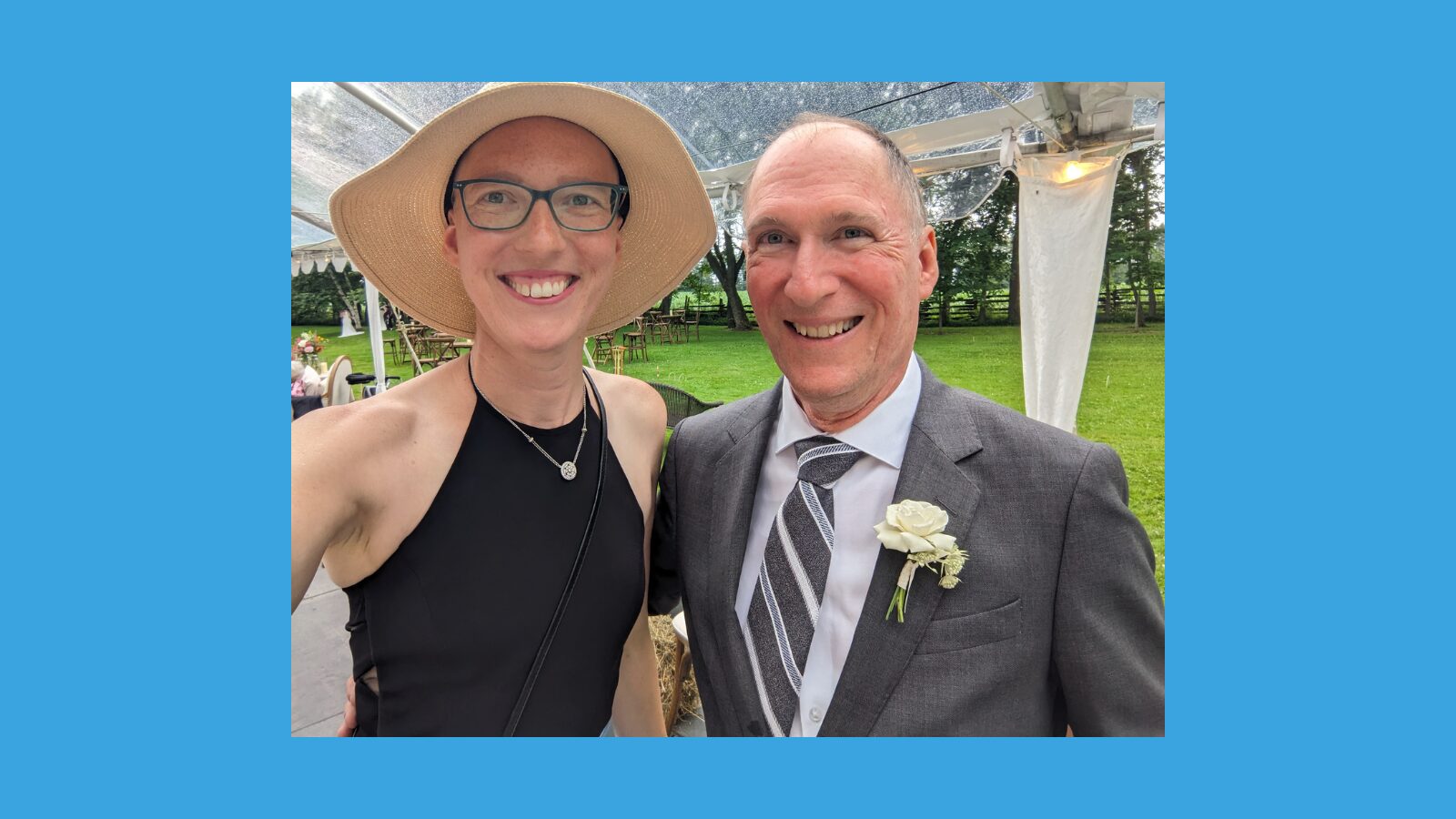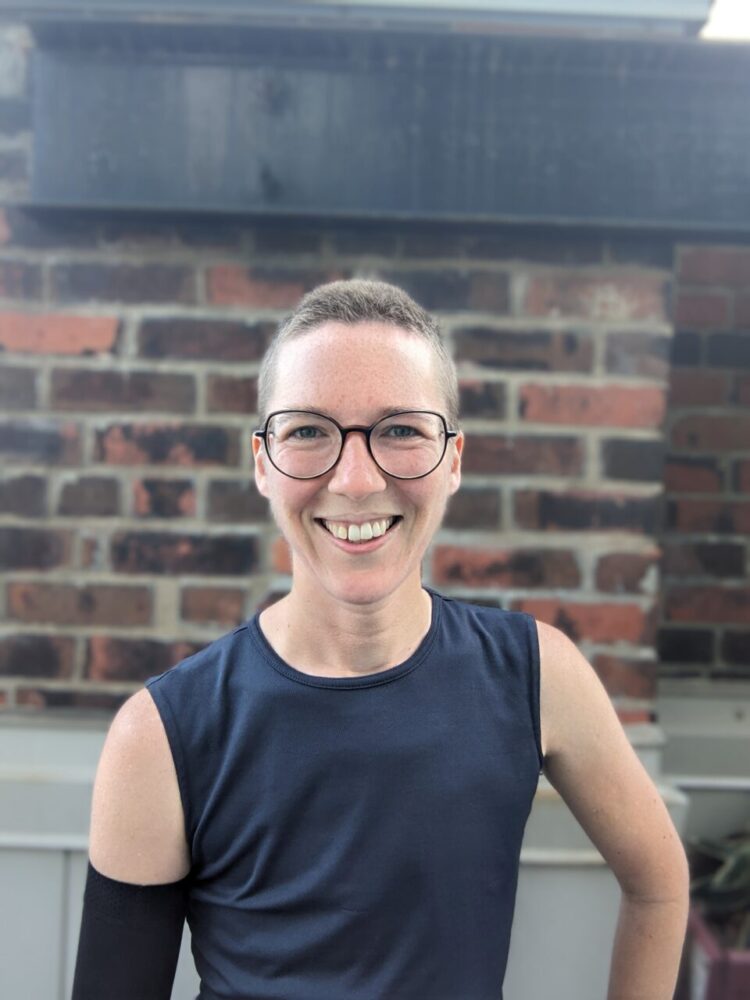About Damn Time
6 MINS to read

It’s been a minute, tell me how you’re healin’
‘Cause I’m about to get into my feelings
How you feelin’? How you feel right now?
July 15 was the happiest day of 2023. It was the day my little brother married the love of his life. It was the day I had been looking forward to since the two of them called me in early January to announce their engagement the week after my cancer diagnosis. It was the day I thought about every time chemo was delayed due to low neutrophils or high liver enzymes, counting out the weeks and making sure that phase of treatment would be completed in time. It was the day my dad and I danced under the stars to Lizzo’s electrifying funk-pop anthem. I inherited many things from my dad: not only crooked teeth and myopic eyes, but also a quirky sense of humor, a curiosity about the world and our place in it, and a deep love for music as a creative means of expression. It turns out we both also look ridiculous when we are dancing: him with his knees half-bent and waving his hands above his head; me shuffling forwards and back, wondering what to do with my arms. But on July 15, neither of us cared how we looked out there on the dance floor because there’s one more bond my dad and I share: we’re both breast cancer survivors.
Despite the pink ribbons, breast cancer is not purely a “woman’s disease.” Many people are unaware that since everyone has breast tissue, anyone can get breast cancer, regardless of their gender. However, since men account for only one percent of diagnoses, male breast cancer often brings additional stigma of having to go to a women’s health center for treatment. This was my dad’s experience when he was diagnosed in 2017. Whereas I am so grateful to have found communities of young women who provide mutual support to each other, he endured a single mastectomy, chemo, radiation, and hormone therapy (hello, male menopause!) without meeting anyone else who could relate to what he was going through.
After his diagnosis, my dad was tested for 19 different genetic mutations related to breast cancer. This is the standard panel in our province, and even though the results were negative, his doctor eventually recommended that I should get genetic counseling as well. After some pandemic-related delays, I was eager to start the process that could give me access to the Ontario Breast Screening Program. Having been previously told by my doctor, “You just need to accept you have lumpy breasts,” I felt that some extra monitoring would bring me peace of mind. I was simultaneously relieved and disappointed when I met with the counselor: relieved because the program’s modeling algorithm calculated that I was not considered high risk; disappointed because this meant I did not qualify for extra screening. “But if anything changes,” they told me, “Be sure to let us know.” I was diagnosed six weeks later. “Now,” they told me, “You qualify.” It’s about damn time.
I enrolled in a rapid genetic testing study, filling a plastic vial with saliva so it could be shipped to a testing facility in the United States. The study included a gene panel test that looked at nine genes thought to be involved in hereditary breast cancer. They were all negative. However, the study counselor seemed fascinated by the fact that a father and daughter would be diagnosed within six years of each other. She offered additional testing for an extended multi-cancer panel and preliminary-evidence breast cancer genes: 93 genes in total. They, too, were all negative. Once again I felt that mix of relief and disappointment: relief that my dad had no need to feel guilty about passing on a hereditary disease; disappointment that we couldn’t pinpoint an explanation for me getting breast cancer. The counselor speculated about polygenetic and environmental factors and genes that had yet to be discovered. She also conceded, “Maybe you’re just unlucky.”
I didn’t feel unlucky though. I felt fortunate that my parents and my partner were there to support me every step of the way. But my mum and Oliver didn’t know what it was like to go through treatment for breast cancer – my dad did. One day, my dad and I were walking through the park when I asked him whether he had any strange dreams while he was in chemo. I typically don’t remember any dreams when I wake up, but the ones I’d been having were so vivid it was like I was awake all night. I told him about the one where I was being chased through a dark maze. He told me about the one where he was in a car with no brakes. He got it. And when I clogged my toilet so badly that even a plunger couldn’t fix it, it was my dad who picked up an auger from the hardware store and came to do the dirty work. My dad validated my experience in a way that other friends and family could not, and it strengthened our bond.
I thought of all these things as the beat thumped, the riffs from Lizzo’s flute fluttered through the speakers, and the two of us laughed at ourselves on the happiest day of 2023. On July 15, my dad was six years out of treatment. I was a mere 10 days out of chemo, and had six days to go before surgery. And in that moment with the music up and the lights down, the night sky above us and the dance floor beneath our feet, chemo behind me and a double mastectomy ahead, I got a feeling that I was going to be alright.
Turn up the music,
turn down the lights
I got a feelin’ I’m gon’ be alright
Okay, alright
It’s about damn time.
Claire Lemiski • Airline pilot. Diagnosed at 36. IDC, Stage III, ER+, PR+.
Claire is an airline pilot. Despite her father also having breast cancer, Claire was “not considered high risk” and experienced a lengthy delay in her own diagnosis. She completed active treatment in October 2023 and is embracing flat life. As a captain at a regional airline in Toronto, Ontario, Claire is passionate about providing mentorship to new and aspiring women pilots. She has witnessed the ability of storytelling to inspire and effect change, and she hopes that sharing her experiences with breast cancer will encourage others to advocate for themselves and know they are not alone. • @flatpilot

This piece has been republished with permission from WILDFIRE Magazine, the “Family: Genetic Legacy, Parenting & (In)Fertility” issue issue, published originally April 20, 2024. More information available at wildfirecommunity.org
WILDFIRE Magazine is the only magazine for young women survivors and fighters of breast cancer under 45 years old. Headquartered in Santa Cruz, California, WILDFIRE is a beautiful, story-based bi-monthly magazine published on different themes relevant to young women survivors, from stage 0 to stage IV. Beautiful and ad-free! Visit wildfirecommunity.org for more info.